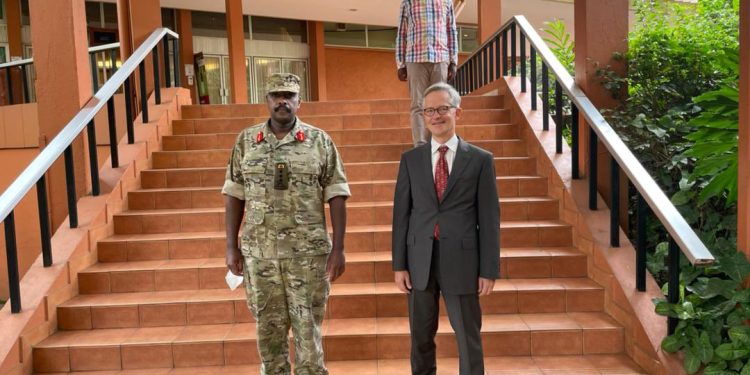Uganda’s security forces have stepped up operations against emerging armed groups suspected of plotting rebellion, terrorism, and economic sabotage, especially targeting the country’s electricity infrastructure.
According to intelligence reports, several individuals linked to subversive activities have been arrested and interrogated in recent months. Many of the suspects were reportedly associated with opposition political movements, particularly the National Unity Platform (NUP), although security authorities did not confirm whether these affiliations were officially sanctioned by the party.
Authorities say vandalism of electricity power lines has been rampant in districts including Wakiso, Mukono, Kayunga, Luweero, Nakaseke, Kiboga, Nakasongola, Mityana, Mubende, Mpigi, and the greater Masaka region.
The Inter-Agency Security Committee—chaired by the Chief of Defence Forces of the Uganda People’s Defence Forces (UPDF) and comprising the Uganda Police Force, Prisons Services, and Intelligence Organisations—has been coordinating efforts to dismantle terrorist cells and prevent the recruitment of youths from Kampala’s ghetto communities into rebel ranks.
In its latest session, the committee resolved to intensify action against ringleaders, organisers, and financiers of such activities, which are suspected to be part of a broader strategy to disrupt the upcoming general elections slated for early next year.
Security officials allege that some funding and support for these “traitorous” activities are being traced to foreign entities, including certain European diplomatic missions. In particular, they raised concerns over what they termed “clandestine and undiplomatic conduct” by German Ambassador to Uganda, His Excellency Mathias Schauer.
“These actions contravene the Vienna Convention on Diplomatic Relations of 1961,” said Colonel Chris Magezi, Acting UPDF spokesperson. “Uganda will be engaging the concerned foreign missions through official diplomatic channels to address these serious breaches.”
The UPDF and its partners have strongly condemned foreign interference in Uganda’s internal affairs, vowing to protect national sovereignty.
Colonel Magezi also issued a warning to Ugandan youths: “Do not fall prey to enemy actors seeking to exploit your vulnerability. Instead, take advantage of government youth development and wealth creation programs for a more stable future.”
The statement concluded with a reaffirmation of government’s commitment to identifying and neutralising individuals involved in subversive politics and activities, in accordance with Ugandan law.





